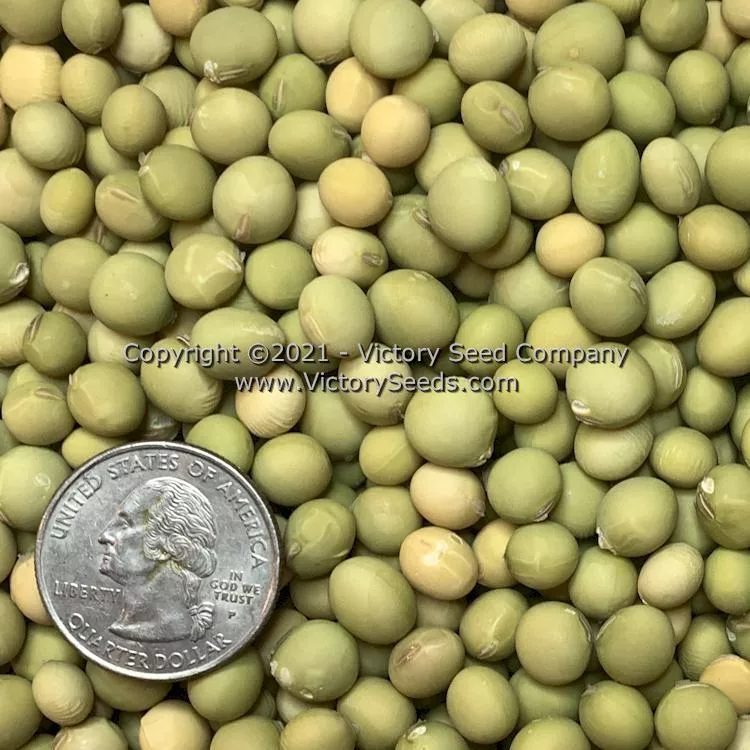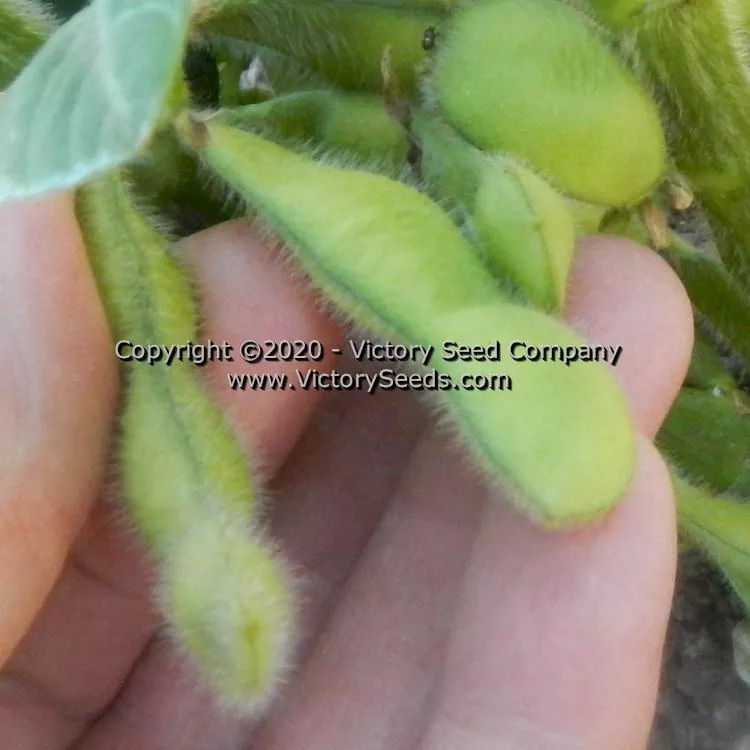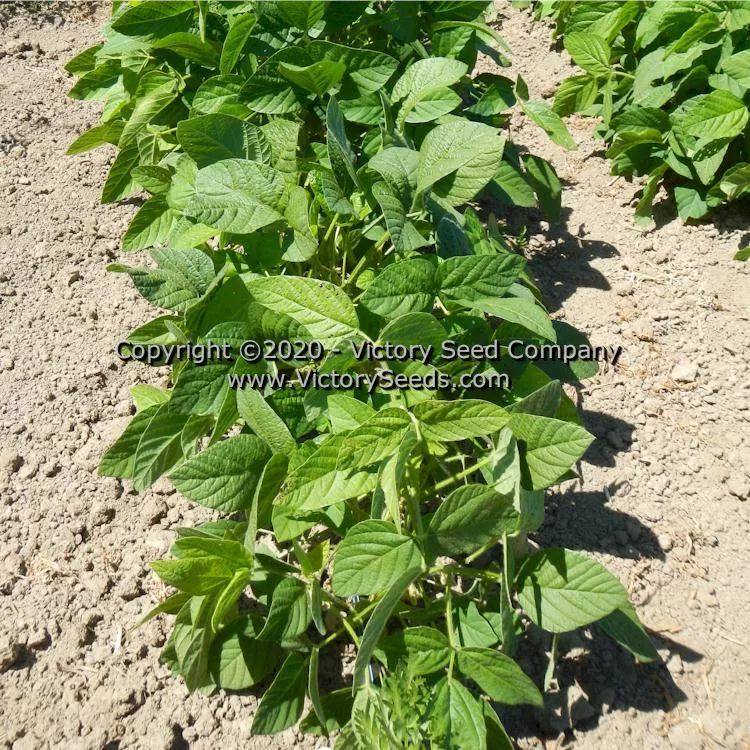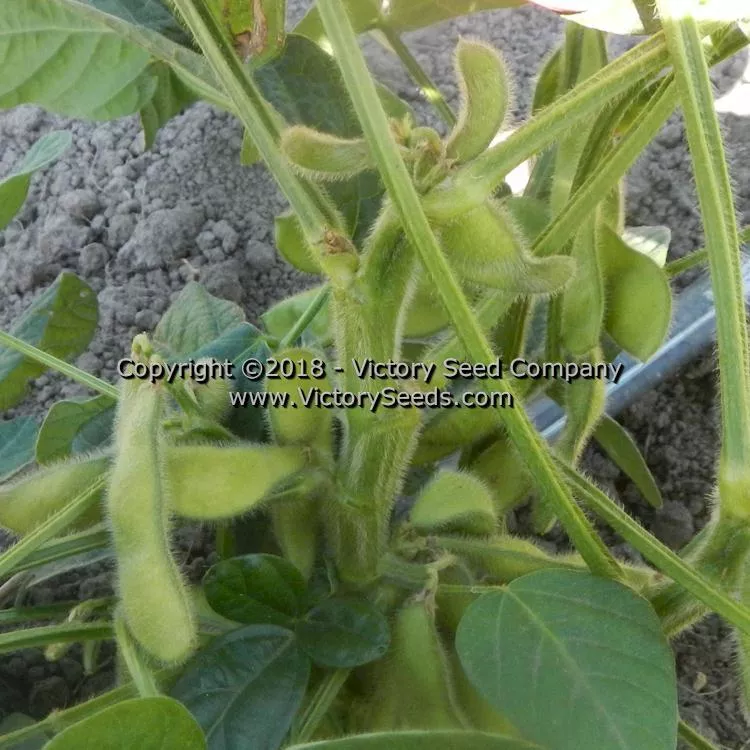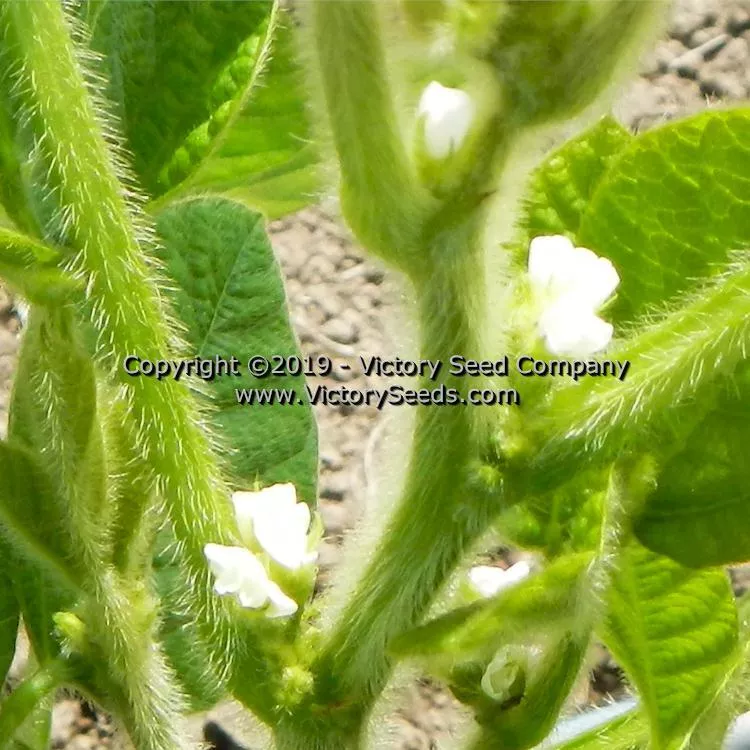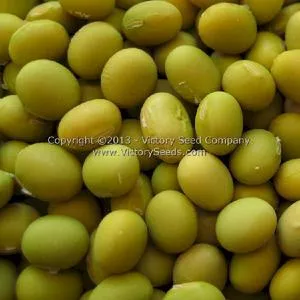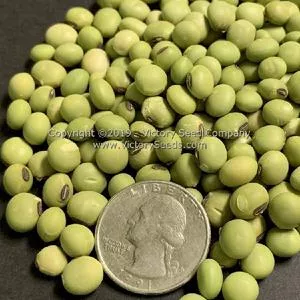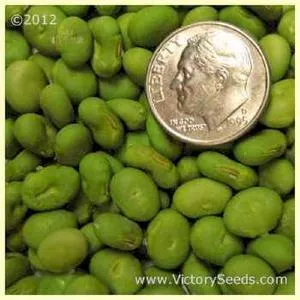




Kenko Soybean
Glycine max
Price: $3.95
SKU: 3311751
Kenko
85 days - 'Kenko' plants grow twenty-four to thirty inches tall developing pods that are bright green containing two to three beans each. The plants tend to be more upright in growth habit than other typical Japanese varieties. Although they are reportedly better adapted for growing in the middle latitude states, it performs moderately well for us here on our farm in Northern Oregon.
'Kenko' can be enjoyed fresh-shelled as edamame (pronounced 'ed-uh-mah-may') at about 80 days. Edamame is a popular snack in Japan, often served with beer. Because it has nutrition and health benefits that other common snack foods do not provide, it is becoming popular in the United States. Harvest for edamame after the pods are fully filled and at the first hint that they are starting to turn yellow.
We do not know much about its history other than it began showing up in various university field trials in the late 1990s. In one consumer testing and descriptive analysis report, participants rated 'Kenko' pods and beans for their appearance, aroma, taste, texture, aftertaste, and overall acceptability. 'Kenko' was rated significantly sweeter, with a more desirable pod appearance and overall taste, than all other varieties.[3] Our original seed source was soy collector and preservationist, Chris Martin (CO MA C).
Genetic Classification: Open Pollinated
Planting Instructions:
Soybeans are a tender plant and should be sown after all danger of frost has passed and the soil has warmed. Planting them at about the same time as corn is a good rule.
Sow seeds about one inch deep, three to four inches apart. Although you can plant in rows, they can be planted densely and allowed to form a canopy. This will help control weed growth. Soybeans are tolerant of drought and poor soil since they fix nitrogen. They will, however, benefit from fertile soil.
Soybean flowers are perfect (self-fertile) and cross pollination is almost non-existent, making saving seed easy. Allow pods to fully develop and dry on the plants.
Sow seeds about one inch deep, three to four inches apart. Although you can plant in rows, they can be planted densely and allowed to form a canopy. This will help control weed growth. Soybeans are tolerant of drought and poor soil since they fix nitrogen. They will, however, benefit from fertile soil.
Soybean flowers are perfect (self-fertile) and cross pollination is almost non-existent, making saving seed easy. Allow pods to fully develop and dry on the plants.
Informational References:
- "Edamame Variety Trial," by Carol A. Miles and Madhu Sonde, Washington State University, Vancouver Research & Extension Unit, Vancouver, WA, 2002.
- "Edamame (Vegetable Soybean) Variety Trial: IDALS Specialty Grant Program-2002," by Dr. Kathleen Delate and Heather Friedrich, Depts. of Horticulture & Agronomy, Bob Burcham, farm superintendent, Neely-Kinyon Research and Demonstration Farm, Dr. Walter Fehr, professor, Dept. of Agronomy, and Dr. Lester Wilson, professor, Dept. of Food Science and Human Nutrition, Iowa State University, 2002.
- "Consumer liking and descriptive analysis of six varieties of organically grown edamame-type soybean," by A.L. Wszelaki, and Jeannine Delwiche, S.D. Walker, R.E. Liggett, Sally Miller, and Matthew Kleinhenz, Food Quality and Preference, 2005.
Customer Reviews:
Do you have experience with this one? 📝 📣 Write a review!
No reviews have been posted yet.

